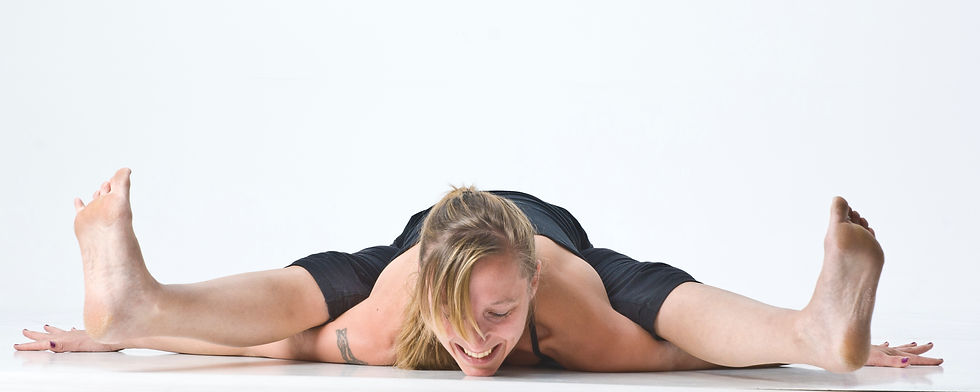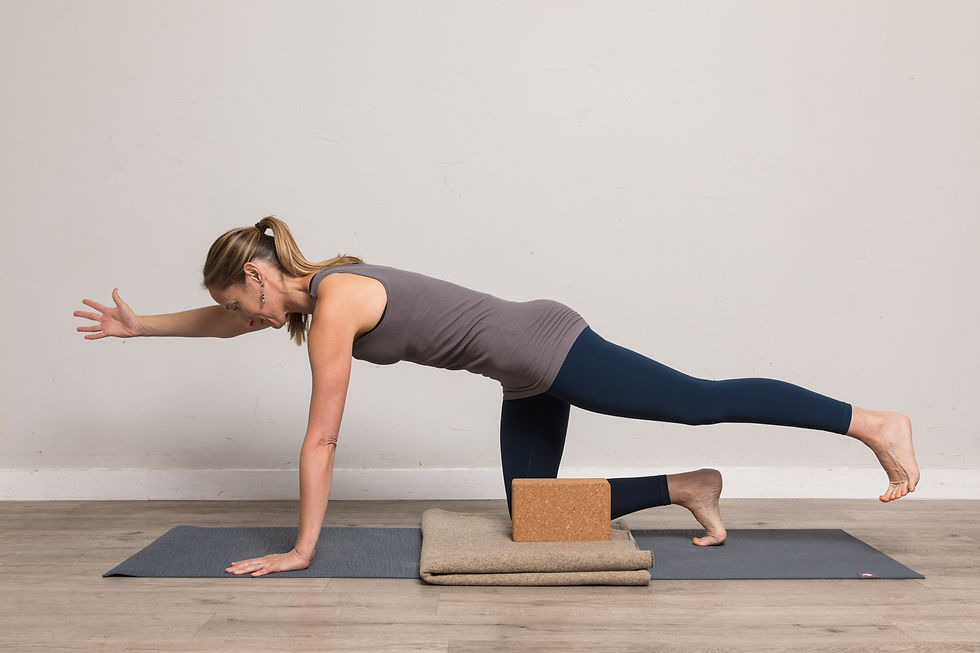Which Yoga Class Is for You?
- Become Centered
- Dec 20, 2020
- 3 min read
What works for your friend might not work for you...
According to Ayurveda (Yoga's sister science), we are all born with our own particular constitution and this cannot be altered. To be healthy and happy, it’s important to identify wellness practices that harmonize our individual make-up. In other words, what works for your friend might not work for you.
Our constitution (Prakruti) is a combination of three humors called Doshas, they are Vata, Pitta and Kapha. Our predominant dosha (or doshas) determine our physique, our mental and emotional tenancies and our predisposition to certain health problems. Generally, we have one or two predominant doshas. Rarely is someone equal parts of all three. It's our varying strengths in each dosha that makes us unique yet similar to our family members.
To regain wellness in mind and body we often need to direct our attention towards our least dominant qualities.

When functioning on autopilot, we tend to lean towards our strongest attributes and in times of stress they can become exasperated and we begin to feel burnt out and unhappy. To regain wellness in mind and body we usually need to direct our attention towards our least dominant qualities. In the same way when we’ve added too much spice to a curry we can reduce the spicy taste by adding sweet.
How to Find the Ideal Yoga Practice for Your Constitution
Here's an introduction to the three Dosha's. Remember everyone has all three Dosha's just in differing proportions.
Which Dosha(s) Do You Relate to The Most?
If you're unsure read the Signs of Imbalance for each type and see which one you most relate to today. Here's an example, if I'm feeling nervous and overextended a Vata balancing practice will help calm my nerves whereas a Power Vinyasa class could agitate me even more.
Vata Body Type
Delicate bone structure, low body fat, hard to gain muscle definition, mobile and tendency towards hyper-mobility, can injure easily, crackly joints, easily gets cold.
A natural Ballerina.
Vata Personality
Creative, inspirational, spiritual, adaptable.
A natural holistic healer.
Signs of Vata Imbalance
Bloating, dry skin, hair and nails, coldness and chills, unfocused, nervous, worry, forgets to eat, has too many projects on the go, says yes to opportunities more than no.

Yoga and Vata Predominant People
They easily move into deep stretches, but will find yoga poses that require strength more challenging. While they’re often attracted to Vinyasa Flow (where they feel like a dancer), these classes can deplete their energy, exaggerate their tendency toward hyper-mobility and injury.

To Balance Vata
Choose slower alignment focused classes to focus the mind. Use props to rein in joint hyper mobility and build isometric muscle strength. Seek classes that include core and shoulder girdle strengthening exercises. Focus on slow deep breathing and a longer Savasana to feel grounded and centered.
Pitta Body Type
Medium body size, builds muscles definition easily, mobile yet stable joints, easily overheats. A natural athlete.

Pitta Personality
Courageous, ambitious, joyful, highly organized.
A natural leader.
Signs of Pitta Imbalance
Easily agitated, focuses on peoples faults, overly competitive, tendency to overexert themselves, perspiration, over working, diarrhea, skin rashes, burning eyes.
Yoga and Pitta Predominant People
They're often drawn towards challenging Vinyasa Yoga classes where Sun Salutations and arm balances will come quite naturally to them. They like classes that push them to, or beyond their edge in the belief that this will help achieve optimum health.

To Balance Pitta
Choose a class and teacher who doesn’t encourage your competitive nature. Athletes in training will experience great benefits from a slow paced Yoga class with an emphasis on stretching and the use of props. It is important for Pitta types to balance activity with rest and to allow time for simple pleasures. Restorative Yoga and meditation will help tightly scheduled Pittas rest and restore.

Kapha Body Type
Large bones with a rounder face and body, strong, lots of stamina.
A natural body builder.
Kapha Personality
Calm, supportive, loyal, leans towards comfy and cozy.
A natural caregiver.
Signs of Kapha Imbalance
Holding on to emotions, resisting change, lethargic, sleeping too much, depressed, lacking enthusiasm, feeling sluggish, congestion, overweight. (Kapha people gain weight easily).
Yoga and Kapha Predominant People
They're often drawn to slow gentle Yoga and meditation.

To Balance Kapha
Choose classes that pay attention to alignment, begin slowly and gradually build to include vigorous Poses. Physical excursion helps Kapha people remove heavy and lethargic energy especially when feeling depressed or taking care of others more than themselves.




Comments